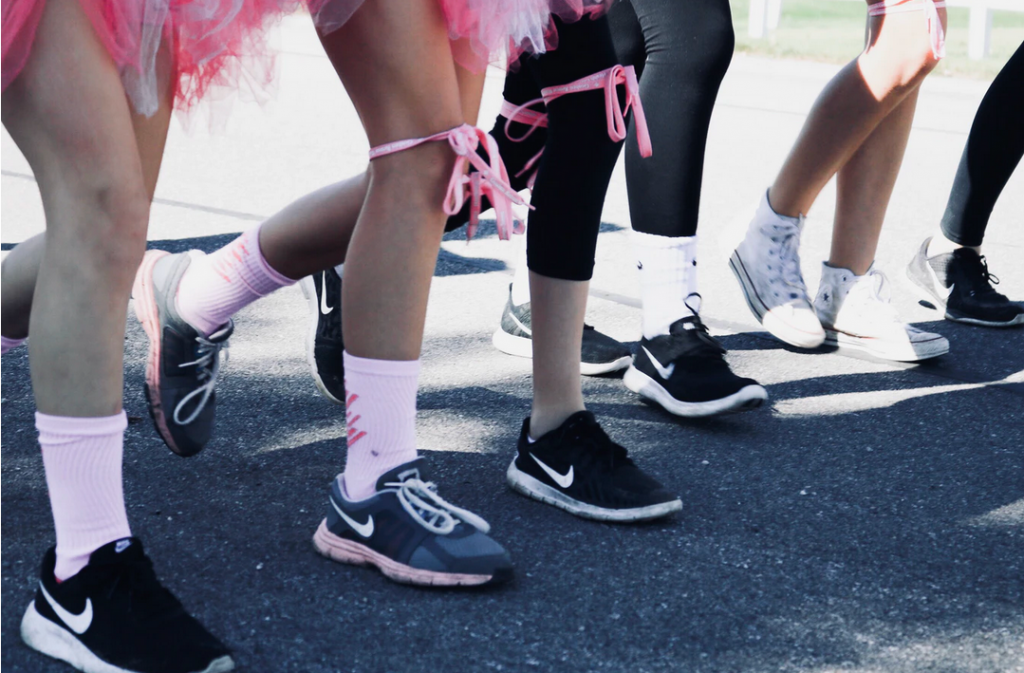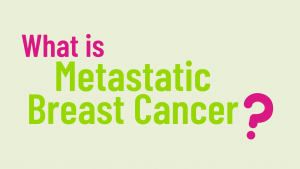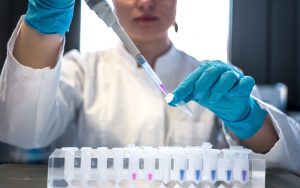When doing a quick search to find out what breast cancer awareness month is all about, you will find that it is an annual health campaign aimed at raising money by different charitable health organizations. This is a worldwide month of recognition as this cancer is prevalent in both developed and developing countries. You will also quickly see many ways to get involved or do more, such as wearing pink, signing pledges, or starting a campaign.
All of these campaigns are incredibly valuable to women and men everywhere who live with this diagnosis. But you may wonder…what is breast cancer? How is it affecting people? How could it affect me? What does donating actually do? Can I really be the one to make a difference? These are all perfectly valid questions. Before supporting any organization, or raising awareness – you should know what you are supporting and what your money will be used for.
This is the best way to make a real impact.
Why Is Breast Cancer Awareness Important?
One thing to know about this cancer is that it is one of the most common cancers for women to be diagnosed with, besides skin cancer. About 1 in 8 women will develop breast cancer in their lifetime, while men can also be diagnosed with it. You may know someone who has been impacted or directly affected by breast cancer as there are over one million new diagnoses a year worldwide.
Breast cancer is not a “one size fits all” kind of disease. It can show up differently in every patient, and treatment plans can vary drastically from person to person. There are different stages of cancer that determine how much and how far the cancer has spread.
Stage IV, also referred to as “metastatic”, occurs when the cancer has moved past the breast and nearby lymph nodes and made its way to other parts of the body. The cancer can then spread to vital parts of the body, such as bones, and treatment from then on is focused on reducing symptoms and slowing the spread of cancer.
Though stage IV is the most advanced and most deadly stage of the disease, it receives the least amount of funding and attention, with most directed towards early prevention. That is why The Side-Out Foundation focuses on enhancing the treatment solutions for stage IV that are specific to each individual, in turn, giving them more time.

Why Pink?
Pink is the now the adopted ribbon color for breast cancer (it used to be peach) and in October we will see millions of people totting the color pink to raise awareness and create a sense of community. However, pink can actually be rather controversial.
Some who may view pink negatively may see pink as a way to distract people from the actual disease, and a way to manipulate the public emotionally with pink merchandise. The idea is that pink can be misused by corporate organizations, or massive nonprofit organizations, who profit off of pink rather than giving as much back as possible to the breast cancer community.
The pink ribbon is often worn to represent “surviving, or fighting” breast cancer, however, living with stage IV means the cancer has metastasized, and it cannot be eradicated. While those with stage IV breast cancer realize they are going to live with it for the rest of their life, they know that it is not about a pink ribbon, but spending more time with their loved ones and finding medical treatments to slow the spread. The color being about joy and giving, makes things seem too optimistic and joyful when cancer is anything but that.
As someone who lost someone to stage IV, I despised seeing organizations use pink, seemingly forgetting that people have lost their lives. Now though, I recognize it comes down to research, being an advocate, and taking action. Pink can’t just be about the color or simply wearing a ribbon. It has to be a way to speak up about cancer, a way women and men can share their stories, a way to educate others, and a way to provide solutions to those who need them.
How can I support those living with breast cancer?
There are a number of organizations that you can join and support, but it is important to always do your research. Money donated to these organizations can be dedicated to many different aspects, such as education, early detection, different stages, and more. When you decide which organization to donate to, you want to know that your donation will go to something that is truly helping others, such as treatment or education, rather than going right into the organization’s pocket. For example, The Side-Out Foundation is a nonprofit organization that allocates its funding directly into its own innovative research dedicated to those living with stage IV breast cancer.
Education can be another great way to do your part to advocate and learn during breast cancer awareness month. Listen to women and men’s experiences with breast cancer, and hear their perspectives on what is needed. You can learn a lot from what they have had to go through and see where changes need to be made. Also look into clinical research, studies, or even speak to researchers and doctors who work in the field. This can give you a scientific perspective on the disease when learning more about it.
At Side-Out, we push those working with us to learn and expand their knowledge on the topic. We find that knowing more about breast cancer helps so many people in truly becoming advocates. When you have knowledge under your belt, you are able to advocate and educate others on what you know. We know that you can make a difference in advocating for a cause. The Side-Out Foundation is a (501c3) nonprofit and research organization committed to providing life-extending solutions through precision medicine for the stage IV breast cancer community while being a resource for all those living with breast cancer. These solutions make real impacts.
Our end goal is for more people to look at the month of October and not just see pink. It is to understand more about the disease, be able to sympathize with those affected, and urge change. Side-Out believes breast cancer should be more than an annual matter, and that One Day Is Not Enough to focus on those living with the most advanced form of the disease, stage IV. It should be a daily thought where people are eager to make a difference in so many lives.





